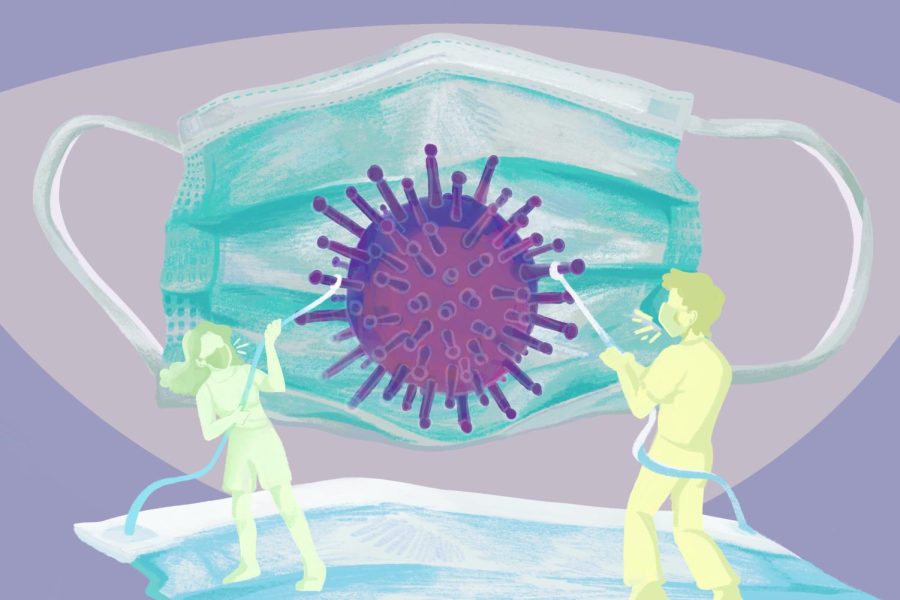Students, consider wearing masks this flu season
October 19, 2022
Masks are the “most powerful public health tool” for preventing infections, according to Robert Redfield, the former director of the Centers for Disease Control and Prevention. Although America has turned this into a political statement, masks have remained a helpful way to stop the spread of illnesses for centuries. For this upcoming winter, students should mask up as an effective measure to prevent other illnesses like the flu.
Susan Hochman, associate director of University Health Services, said masking on campus during the COVID-19 pandemic, along with other preventative measures such as quarantining and washing hands, brought on-campus flu infections down from 446 cases in 2019-2020, to two cases in 2020-2021.
“The hand washing, the mask, the various guidance … have the potential to have some benefits in terms of preventing other respiratory illnesses, including the flu,” said Dr. Terrance Hines, executive director and chief medical officer for University Health Services.
In cultures outside of the U.S., masking is the standard for when people get sick. It’s seen as a protective measure for the wearer, as well as for the people surrounding them. The idea of protecting others is known as “collective reasoning,” and is seen in parts of Asia such as Japan. This societal standard of masking is shown to result in lower infection rates from respiratory illnesses, which is a practice that can benefit students on campus.
Due to the declining rate of COVID-19 infections in Austin, many students have chosen to stop masking. However, students should take precautionary steps for flu season.
John Vu, a liberal arts freshman, said he will get vaccinated in preparation for flu season and that he would wear a mask if he gets sick.
“If (the sickness) is awful, I’ll just wear a mask in case I actually have something really bad, so I don’t miss class,” Vu said.
Students are often motivated to attend class despite being sick because of UT’s rigorous schedules and conversations around productivity. However, these students should still wear masks to keep others safe from their illness. Alternatively, if students are attending classes where they might be surrounded by sick students, they should wear masks to keep themselves safe.
As for other ways to prevent infection during this flu season, Dr. Hines offered some advice.
“We encourage a multi-layered approach in terms of infection prevention: staying at home when you’re sick, washing your hands (and) covering your cough or sneeze,” Hines said.
Students, a little discomfort from a mask just may save you a lot of discomfort from being sick.
Emejulu is a computational engineering freshman from Austin, Texas.











